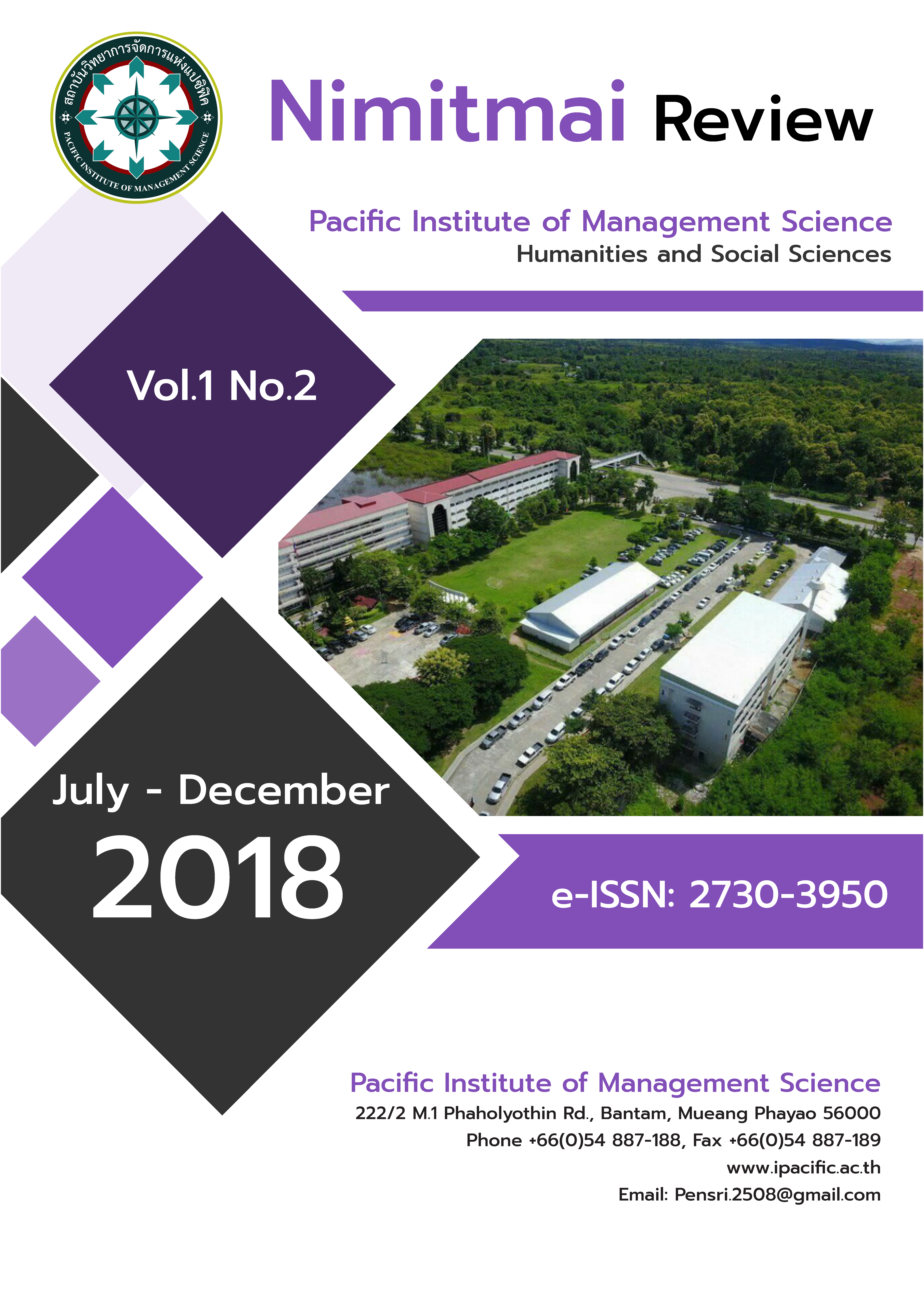Tourist to Ajarn: The Filipino Teachers in Thailand Eunice Barbara C. Novio, MAWD
Keywords:
Filipino / tourists / migration / English teachers / development / ASEANAbstract
Most Filipino teachers in Thailand teach in an urban (pre-school), phaeton (elementary), and Mathayum (high school). Few Filipinos are able to teach at the university level where professional development is highly esteemed in the academic community. The Filipino teachers are pressured to improve their teaching methods as well as seeking avenues to improve their professions to ensure that their employers will renew their contracts yearly.
This paper presents the professional development of the Filipino teachers in Thailand which they could not have if they remain in the Philippines. Filipino teachers are in demand due to their abilities to adapt to any work environment. The study explored the lives of five Filipino teachers working at elementary and university levels and their struggles to professionally improve themselves to ensure the continuous renewal of their contracts.
Furthermore, it also discusses the teachers’ reasons for migrating; the sources of recruitments and the status in terms of Philippine Overseas Employment Administration (POEA) registration and Overseas Workers Welfare Administration (OWWA) membership; securing work permits and acquisition of teacher’s license and other requirements as prescribed by the schools/employers as well as the professional and labor-related concerns both in the host country and the country of origin. Employing the life story method the author did questions, interviews via the internet, and review of related literature as secondary data. The questions were semi-structured which provided the respondents to reflect and dissect their situations in an open mindset.
To date, the Philippine Embassy in Thailand accounts Filipinos as more or less 16 to 17 thousand. There is no accurate data since the Filipinos move constantly. Thus, one of the problems cited by the Embassy.
The respondents are from Phitsanulok, Nakhon Ratchasima, Buriram, Khampeang Pet, and Nonthaburi.
References
Asis, M.B. (2008) ‘How international migration can support development: A challenge for the Philippines’ in Castles, S. and Delgado Wise, R. (eds) Migration and development: perspective from the south, (Geneva: International Organization for Migration)
Bacalla, T. (Sept. 11, 2012) Asian locks horns on migrant workers’ rights. Malaya. Retrieved April 13,2013http://www.malaya.com.ph/index.php/news/nation/12762 ASEAN-locks horns-on-migrant-workers-rights
Becker, Gary S. (1975.) Human Capital: A Theoretical and Empirical Analysis, with Special Reference to Education. 2d ed. New York: Columbia University Press for NBER. Choy, C. (2003). Empire of care: nursing and migration in Filipino American history. Duke University Press
Tulum-Cruz, Gemma and Raúl Fornet-Betancourt, ed. (2004), Migration and Interculturality: Theological and philosophical challenges Migration in the Asian Region: Retrospect and prospects. Aachen: Institute of Missiology, p. 21-30.
Depasupil, W. (December 3, 2006) RP breaches one million marks in OFW annual deployment. Manila Times. Retrieved April 8, 2013, from http://www.highbeam.com/doc/1P3-1174913371.html
Go, Estella (2007) Asian Labor Migration: The Role of Bilateral Labor and Similar Agreements. Paper presented at the Regional Informal Workshop on Labor Migration in Southeast Asia: What Role for Parliaments, 21-23 September 2007, Manila, Philippines.
Muennoo, T.( Jan. 17, 2012) Eight professions to face tough competition. The Nation. Retrieved Feb.16,2017 http://www.nationmultimedia.com/news/national /AEC/30173878.
National Statistics Office (2012). Overseas Filipino Workers estimated at 2.2 million. Retrieved from http://www.census.gov.ph/content/2011-survey-overseas-filipinos-sof Novio, E.B. (Feb. 25, 2012) OFW teachers find a niche in Thailand. Philippine Daily Inquirer. Retrieved Feb. 16, 2017, http://globalnation.inquirer.net/26761/ofwteachers-find-niche in-Novio, thailand#ixzz2Pl07zbJc
O’niel, K. ( Jan. 01, 2004) Labor export government policy: the case of the Philippines http://www.migrationpolicy.org/article/labor-export-government-policy-case Philippines
Organization for Economic Cooperation and Development. (2015). Building human capital through labor migration in Asia. ADB, OECD, ILO Philippine Embassy (January-June 2012) Report to Congress
Rodriguez, Robyn M. (2005). “Domestic insecurities: Female migration from the Philippines, Development and National Subject-Status. Working paper 114, March 2005. University of California, Berkeley.
Tangkitvanich, & Rattanakhamfu, S. (March 17, 2017. Assessing the ASEAN Economic Community. East Asia Forum. Retrieved January 05, 2017, http://www.eastasiaforum.org/2017/03/21/assessing-the-asean-economic-community/
Tubeza, P. (2009, 26 June). More Filipino teachers off to jobs abroad. Philippine Daily InquirerUnions Without Borders, A Primer on Global Unions and What they Can Do for Migrant Workers UN General Assembly International Convention on the Protection of the Rights of All Migrant Workers and Members of their Families, 18 December 1990 at:http://www.unhcr.org/refworld/docid/3ae6b3980.html [accessed 7 April 2013]
Yue, C. S. (2013). Free Flow oF Skilled labor in ASEAN. ASEAN Economic Community Scorecard: Performance and Perception, 107.
http://www.ilo.org/dyn/migpractice/migmain.showPractice?p_lang=en&p_practice_id=5 http://www.trafficking.org.ph/papers/ra9208primereng.pdf http://unifem eseasia.org/projects/migrant/mig_pub.htm
http://www.notre-europe.eu/.../pdf/Policypaper24-en-droitdesmigrants.pdf http://centerformigrantadvocacy.files.wordpress.com/2012/06/bilateral-labor-agreements andsocial-security-agreements1.pdf
http://asean.org/asean-economic-community/
http://report.hdr.undp.org/ Human Development Report 2015
http://bangkokpe.dfa.gov.ph/about-us/overview-of-phils-and-thailand-realations http://www.mekongmigration.org/?page_id=80



